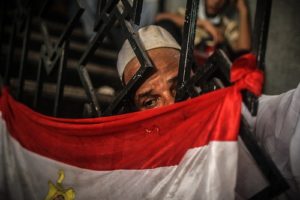The Poet Cannot Stand Aside: Arabic Literature and Exile
M. Lynx Qualey Fourteen hundred years ago and more, the poet-prince Imru’ al-Qais was banished by his father. The king exiled his son, or so the legend goes, in part because of the prince’s poetry. Thus it was that, when the king was killed by a group of his subjects, al-Qais was traveling with friends. Al-Qais returned to avenge his
» Read more